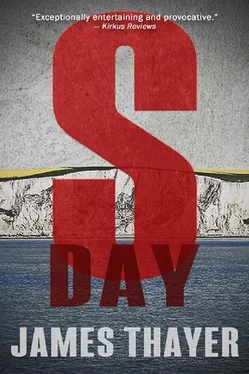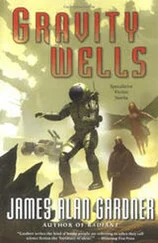James Thayer - S-Day - A Memoir of the Invasion of England
Здесь есть возможность читать онлайн «James Thayer - S-Day - A Memoir of the Invasion of England» весь текст электронной книги совершенно бесплатно (целиком полную версию без сокращений). В некоторых случаях можно слушать аудио, скачать через торрент в формате fb2 и присутствует краткое содержание. Год выпуска: 2015, Издательство: Sacajawea Publishing, Жанр: Альтернативная история, Триллер, prose_military, на английском языке. Описание произведения, (предисловие) а так же отзывы посетителей доступны на портале библиотеки ЛибКат.
- Название:S-Day: A Memoir of the Invasion of England
- Автор:
- Издательство:Sacajawea Publishing
- Жанр:
- Год:2015
- ISBN:нет данных
- Рейтинг книги:3 / 5. Голосов: 1
-
Избранное:Добавить в избранное
- Отзывы:
-
Ваша оценка:
- 60
- 1
- 2
- 3
- 4
- 5
S-Day: A Memoir of the Invasion of England: краткое содержание, описание и аннотация
Предлагаем к чтению аннотацию, описание, краткое содержание или предисловие (зависит от того, что написал сам автор книги «S-Day: A Memoir of the Invasion of England»). Если вы не нашли необходимую информацию о книге — напишите в комментариях, мы постараемся отыскать её.
S-Day: A Memoir of the Invasion of England — читать онлайн бесплатно полную книгу (весь текст) целиком
Ниже представлен текст книги, разбитый по страницам. Система сохранения места последней прочитанной страницы, позволяет с удобством читать онлайн бесплатно книгу «S-Day: A Memoir of the Invasion of England», без необходимости каждый раз заново искать на чём Вы остановились. Поставьте закладку, и сможете в любой момент перейти на страницу, на которой закончили чтение.
Интервал:
Закладка:
I found him near a hedge, hidden from the manor house. He was bent over, hands on his knees. He shuddered, but there was nothing left. A pool of vomit was beneath him on the grass. He wiped his mouth with the back of his hand and looked up at me.
“Don’t put this in your diary,” he ordered.
“No, sir.”
“If a quarterback can puke before the big game, why can’t I?” He stood and squared his shoulders, then snapped, “Enough fresh air, Colonel.”
I walked with him back into the billiard room. This incident in the garden was how I learned that the general was afraid, just like the rest of us.
A short while later we were again squeezed into the Cub, sitting in a pasture used as a runway near the manor house. The pilot talked aloud to himself, doing his preflight check. The take-offs were usually the roughest part of any journey.
General Clay boasted he had stolen the best American pilot in England, Captain Terry Norman. Norman vociferously complained he was wasted ferrying the general around in “this puny nosepicker.” He had lost his Mustang in the channel, and there was no replacement. In a fit, he had stenciled “Nosepicker” on the plane. Clay laughed, but ordered the censors not to let the American public learn of it.
Norman lifted a pair of spectacles from his pocket and put them on. I had never seen them before.
“You’re wearing glasses?” the general exclaimed. “You’re a fighter jock.”
“I’m tired of squinting,” he said equably. “And now that you’ve seen me put them on, do you want me to take them off?”
“No,” Clay answered hastily. “Not at all.”
The engine roared, and the plane began down the runway. I am a large man, and my seat behind the pilot and Clay allowed for little dignity. My knees were almost touching my chin, and my neck was bent over at an uncomfortable angle. Every time the wheels rolled into a rut over a hardened cow pie, the roof banged against my head.
Norman lifted the plane into the air, and the ride at once became smooth. The land fell away from us. We flew over the pond south of the manor, then banked over Westwell. The spires of Ashford were out our port window. Longbeech Wood was to our right. Below us, sheep speckled their grazing grounds. Fields of grain and hops were cut into the land. Stone walls surrounded orchards. Kent was proudly called the Garden of England. The general gazed intently at the verdant hills and pastures.
After a moment he said, “I’ve been entrusted with the special stewardship of the land below us, Jack. No matter what is to come, I’m not going to forget that.”
Sometimes I thought the general was making a record for posterity, knowing I wrote down his pithier comments. This wasn’t one of his better ones, but I noted it anyway.
He turned in his seat and said in a less noble vein, “I had to fight like hell to get it, too. The Brits, full of righteous indignation, wanted to put us Americans on the back burner, set us up in Berkshire and Oxfordshire and some of the other shires, and use us only as reserves. They argued they could defend their own beaches, thank you. They’ve got five thousand miles of coastline, for Christ’s sake. Sometimes I think English optimism is a national danger.”
He interrupted himself to address Captain Norman. “This is about the moment in any flight where you lobby me to transfer you back to your unit.”
“I’ve given up on that, sir.”
“Saving your breath for swimming, in case you ditch us in the channel? You’ve got experience at that.” The general winked at me. “I heard you had to dogpaddle five miles to shore because nobody would rescue you.”
“I like to think they didn’t know I was down, sir.”
Norman was old for a fighter pilot, and he was the only bald Mustang pilot I saw during the entire war. He said he lost his hair within three months of his twenty-fifth birthday, and his fellow pilots were ceaseless and imaginative inventing nicknames for him. He was from Mobile.
The general returned to his subject. “I asked Roosevelt to insist that as a condition of our participation in this theater American troops would be on the line.”
“I’m sure our soldiers are grateful, sir,” I said.
“We busted out butts to get here, but we’re still being relegated to a kiss-your-sister role,” he said with distaste. “The British Army is going to see the action while we sit on our thumbs.”
“You sure of that?” Norman asked.
“No, but it’s AACCS’s last, best guess. Only the German knows better, and he’s not talking.” AACCS was the Anglo-American Combined Chiefs of Staff. Unfortunately, the acronym was pronounced “axis.”
Norman pressed his headset against an ear, listening intently, then said, “Folkestone is being shot up, sir. They think it’s an E-boat raid. Couple of RN ships are in trouble.”
The general said, “Let’s take a look.”
The pilot grinned and instantly put the Cub on its wing, turning south toward the channel. He was one of those fellows whose entire being atrophied when he wasn’t in the middle of the fray.
Clay said, “Captain, this plane isn’t going to get there any faster, no matter how hard you rock back and forth.”
Norman stilled himself. “Sorry, sir.”
Several moments later we flew over the Great Stour River northwest of Ashford. The English call a hill a mountain, a pond a lake, and a creek a river. The Great Stour River is an example. A stone could be thrown over it at most places. To someone from the West Coast of America (I’m from San Diego), England is a miniature. All of Great Britain, including England, Scotland, Wales, and Northern Ireland, is smaller than Oregon, as I once heard Clay petulantly remind Churchill. (The PM replied, “Oregon? That’s somewhere near British Columbia, is it not?”) It takes a while for an American to adjust to English map scales.
Clay frequently complained to me that the Defense Committee had given him too little of the country to defend. The general’s army, the AEF, was comprised of two corps, called, fittingly, I Corps and II Corps. I Corps’s sector was roughly from Portsmouth to the River Rother, or about seventy-five air miles along the channel, and extended inland almost to London. II Corps’s area was from the Rother east to Foreness Point, about forty-five miles, and included most of Kent, England’s southeast county. Thus, the area of Great Britain defended by Americans just before S-Day was the combined size of Delaware and Rhode Island, our two smallest states.
British and Commonwealth soldiers, with a smattering of Free French, Poles, and others, guarded the balance and, by far, the bulk of the island. To the west of the American Expeditionary Force was the British V Corps, spread over Hampshire and Wiltshire and eastern Dorset. Next was the British VIII Corps, responsible for the rest of Dorset and west to Land’s End.
On the other side of the Americans were five British corps, ranging from the Thames estuary north to the Scottish border. A Canadian and yet another British corps were in reserve north and east of London.
Something over 85,000 soldiers were in the American sector, all under General Clay. Each American corps was comprised of three divisions and a pool of nondivisional combat units. The divisions each contained between seven and ten thousand soldiers. To get an idea of a division’s size, figure that a division on the move may take two hours to pass a given point and stretch for twenty miles.
More Americans were frantically on the way. Almost an entire corps was in transit on the Atlantic on S-Day. Some never arrived, and the rest were too late.
We were five miles north by northwest of Folkestone, over Acrise Place, when Captain Norman spotted the smoke from a fire at the stern of a ship. It was under power, churning eastward away from Folkestone, as if trying to flee the flames on its own aft deck.
Читать дальшеИнтервал:
Закладка:
Похожие книги на «S-Day: A Memoir of the Invasion of England»
Представляем Вашему вниманию похожие книги на «S-Day: A Memoir of the Invasion of England» списком для выбора. Мы отобрали схожую по названию и смыслу литературу в надежде предоставить читателям больше вариантов отыскать новые, интересные, ещё непрочитанные произведения.
Обсуждение, отзывы о книге «S-Day: A Memoir of the Invasion of England» и просто собственные мнения читателей. Оставьте ваши комментарии, напишите, что Вы думаете о произведении, его смысле или главных героях. Укажите что конкретно понравилось, а что нет, и почему Вы так считаете.












